Around 10,000 years ago, our ancestors used social proofing to determine which plants were safe to eat or in which direction they should march off in search of a new hunting ground. Now, we use social proof to decide which flavor of ice cream to eat or where to go on vacation.
The decisions we make are different, but the social proof principle stays the same. This is why social proof plays such an important role in marketing. It taps into our primal instincts.
And it works.
Today, we’ll show you how to use the social proof principle to build customer trust and generate more sales.
The Social Proof Principle Defined
Social proof is a psychological and social phenomenon that occurs when we are uncertain about how to behave in a situation or what choices to make. In these cases, most people tend to look to the actions of others to determine the correct behavior. This is often done unconsciously.
As Robert Cialdini, the psychologist who coined the term, put it:
“The principle of social proof says so: The greater the number of people who find any idea correct, the more the idea will be correct…We will use the actions of others to decide on proper behavior for ourselves, especially when we view those others as similar to ourselves…When we are uncertain, we are willing to place an enormous amount of trust in the collective knowledge of the crowd….”
Perhaps you think that siding with the wisdom of the crowd isn’t that wise.
That’s true. We certainly don’t want to blindly follow others in every decision we take. But there are certain situations where it comes in handy. I might end up being scammed if I were to choose a hotel without checking any reviews.
So, social proof certainly has its perks.
Why You Need To Use The Social Proof Principle To Build Trust
 Source
SourceNot only is social proof useful for consumers, but it’s also a handy tool for marketers and business owners.
And the icing on the cake? The benefits of social proof outweigh the costs:
1. Helps You Build Credibility and Authority
When we are uncertain about something – we look up to others. If your product is backed by experts, other businesses, or positive customer reviews, people may be more inclined to consider purchasing it.
Being a credible and authoritative source in the field gives you a competitive edge in the industry. Which would you choose – a dentist with no credentials or reviews online or a highly-acclaimed dentist in your town?
2. Builds Brand & Customer Trust
It’s challenging to know which brand to trust with so many options available. People are well aware of marketing tactics.
So, they would rather look up ratings and reviews about a product or service than take the marketer’s word for it. A striking majority of consumers look up customer reviews before buying a product, especially when they come across a retailer they don’t know.
And that’s why you need social proofing as part of your marketing strategy. It conveys that you are trustworthy.
3. Brings Traffic
Imagine you are experiencing a toothache and your dentist is out of town. What do you do?
Like most of us, you’d probably use Google to find a dentist near you. You are immediately drawn to the dentist that has the best ratings. And the most ratings. You check their website and call the shots.
Whether you decide to book a consultation or not – your move brings traffic their way. These days, people don’t even bother clicking on websites with no authority or reviews. More so, websites with user-generated content have 20% more return visitors than those without.
4. Converts Leads Into Customers and Generate Sales
If your website features client reviews, people are going to be more inclined to give your products a shot. Suddenly, it doesn’t seem like such a risky move.
Research has shown that websites with client reviews get 74% more conversions!
That’s wild. If you’re a business owner, marketer, or brand manager – you simply can’t ignore the benefits of social proof. You’re looking at increased conversions and sales, brand trust, and website traffic.
And it’s an affordable marketing technique.
Why Does Social Proof Work So Well?
 Source
SourceYour brain’s reward system gets all fired up when you follow social norms. Yep, the effects of social proofing are that powerful.
Social proof works because it taps into 3 of our most basic needs: belonging, certainty, and safety.
If most people choose a product, they must be on to something, right? 🤔 More so, if I buy this product, I feel like I belong.
These are the main reasons why we rely on social proofing.
What Are the 6 Types of Social Proof?
There’s no doubt that leveraging social proof is a must in today’s competitive landscape. But what are the main types of social proof?
Here’s a quick rundown of the 6 most common types of social proof:
1. User Social Proof
User social proof is a type of social proof that relies on the testimonials and reviews of past customers. When potential customers see that others have had a positive experience with a product or service, they’re more likely to consider using it themselves.
This is because user social proof provides a sense of safety and reassurance. And consumers are more likely to trust users, not the brands selling that product.
2. Wisdom of the Crowd
When uncertain, we tend to follow suit with what others are doing. Mainly because we assume their actions are correct. And we don’t want to miss out on something good.
That’s what the wisdom of the crowd social proof bets on. And it works.
What do you do when you don’t know which mattress to buy? You check the bestseller or the crowd favorite first. They must be up to something, right?
3. Wisdom of Your Friends
Just as we’d take life advice only from the most trusted people in our circle, so would we take product recommendations.
Did you know that consumers are four times more likely to purchase a product or service if it was recommended by a friend? Referral marketing is trusted by most generations, and it continues to be an effective marketing strategy, which people seem to prefer over being bombarded with ads.
4. Certifications & Awards
Certifications, awards, and accolades set you apart as an industry expert. And people would rather trust a business that has been rewarded for the quality of their products than buy a product from a retailer they know nothing about.
5. Expert Social Proof
What better way of convincing people that your product is worth buying than having an expert try it and offer feedback?
We cannot all be experts in every domain. We need to rely from time to time on other people with sufficient expertise and a vast body of knowledge to guide us. The expert’s stamp of approval helps you establish the quality of your products, and it comes in many forms.
6. Influencer and Celebrity Social Proof
Advertisers have used celebrity endorsements to promote their products for ages. A celebrity endorsement is when a famous person promotes a product, service, or brand. The latest adaptation of this is influencer marketing.
These types of social proof work because we look up to certain people — influencers with similar values, singers, actors, and so on. And we want to be like them.
30 Social Proofing Examples
 Source
SourceLet’s take a look at some social proofing examples, now that we have covered the major types of social proof that you can use:
User Social Proof
Customer Testimonials & Reviews
We’ll get things started with the most common type of social proofing, a.k.a the customer review.
Ratings & reviews are an essential part of our shopping experience nowadays. And they come in many shapes and forms. You can add reviews and ratings directly on your website or use review sites like G2 or Capterra to build credibility for yourself in the field. You can add testimonials to your landing pages to boost sales.
1. User Social Proof Example: Sunday Citizen
Sunday Citizen takes advantage of on-site reviews. Each of their products features a review section, where users can submit feedback. This makes it easy to check other people’s experiences with the product and leave your review.
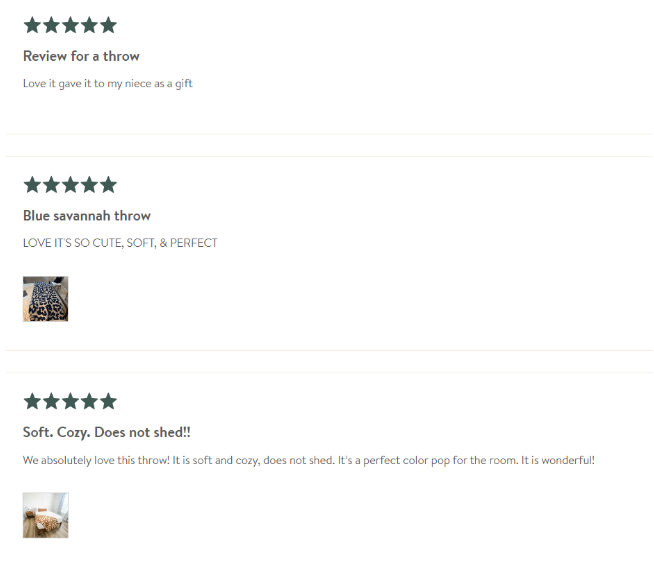 Source
Source2. User Social Proof Example: Mageplaza
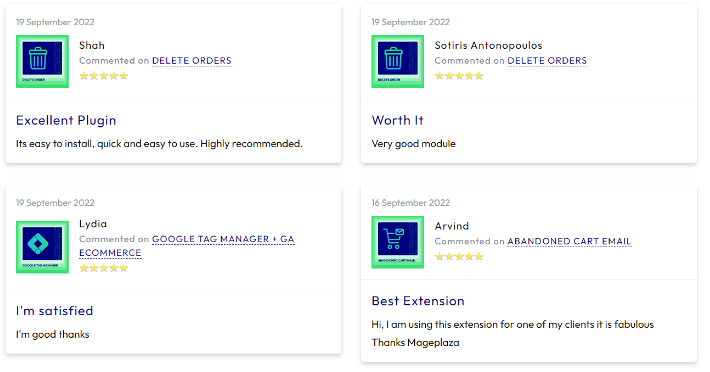 Source
SourceMageplaza has a dedicated review section on its website. While this might work for them, it may be best to display customer reviews on high-traffic pages – such as the home page, or on product pages. You can use a social proof tool to collect customer reviews from different sources.
3. User Social Proof Example: Picreel
On their landing page, Picreel displays brand logos and testimonials. Client testimonials are a great way of social signalling that clients love your products or services. They are especially useful when you provide services or software.
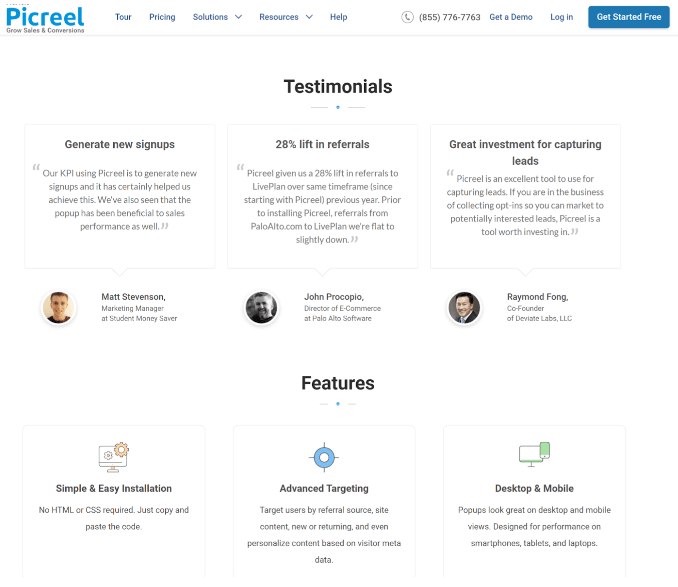 Source
Source4. User Social Proof Example: Jolie Skin Co
Here’s another cool example of displaying testimonials. The testimonials for Jolie Skin Co‘s showerhead are grouped by the type of skin or hair problem they have helped customers with.
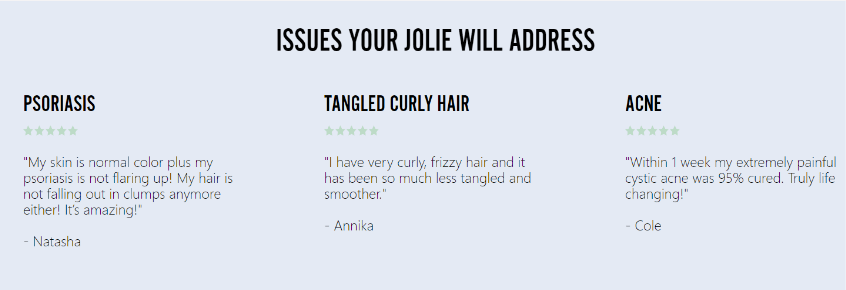 Source
Source5. User Social Proof Example: Access for Students
Who said client testimonials belong only to your website? You can also share them with your social media followers to gain credibility and collect more reviews! This is what this Need Assessment Centre did.
 Source
Source6. User Social Proof Example: Review Sites
To make a name for yourself in the business, you must be present on reviews like G2, Trustpilot, or Yelp. But signing up is just a small step. You need to ask customers for reviews actually to get them!
 Source
SourceAnd if your clients really love your services and products, you might even end up in their “best companies” section!
7. User Social Proof Example: Google Reviews
Good ratings on Google Reviews equals more visibility in Google’s search results and more clients. So be sure to ask satisfied customers to offer you a review on Google.
Check out this business consultant company in Los Angeles. When I look up “business consultant in Los Angeles”, this is the first company that pops up. And it has the most positive reviews on Google.
If I were looking for a consultant, I would check them out first.
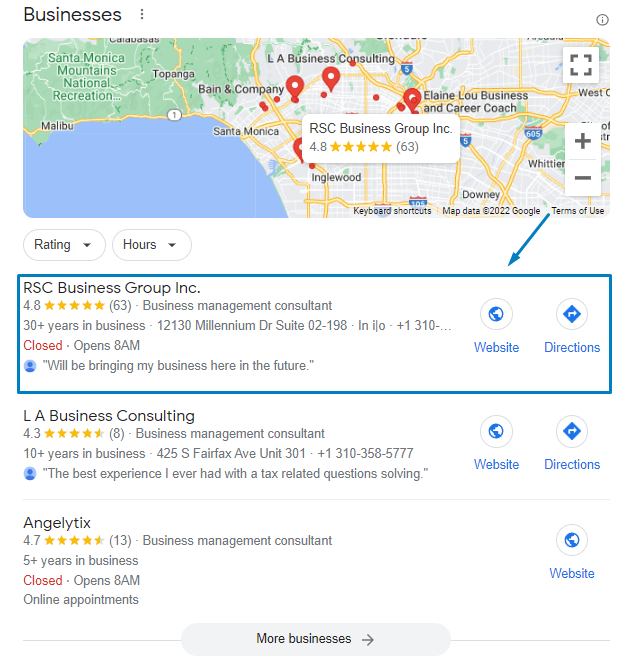
8. User Social Proof Example: Dropbox
 Source
SourceDropbox features a snippet of a success story, which is the perfect way to show off how their product can help professionals. Anyone interested in the full picture can access the full customer story.
9. User Social Proof Example: Flame Analytics
 Source
SourceCustomer logos are a great way to add social proof to your website. When site visitors see that big brands happily collaborate with you, they’ll be more inclined to trust you.
Case Study
In the world of marketing, case studies are nifty tools. Why? Because a case study is a story. It’s the story of how your company solved a problem for a customer.
And people love stories, as long as they are not boring.
Hopefully, by reading your case study, people will see themselves in the story and think, “Hey, if this company was able to help them, maybe they can help me too.”
So if you’re thinking about creating a marketing case study, make sure it’s interesting, informative, and tells a compelling story.
10. Marketing Case Study Example: Startup House
Startup House has a series of web pages dedicated to case studies. Their case studies are comprehensive and give people an inside look at their workflow, while also detailing challenges, solutions, and results.
Here’s an example.
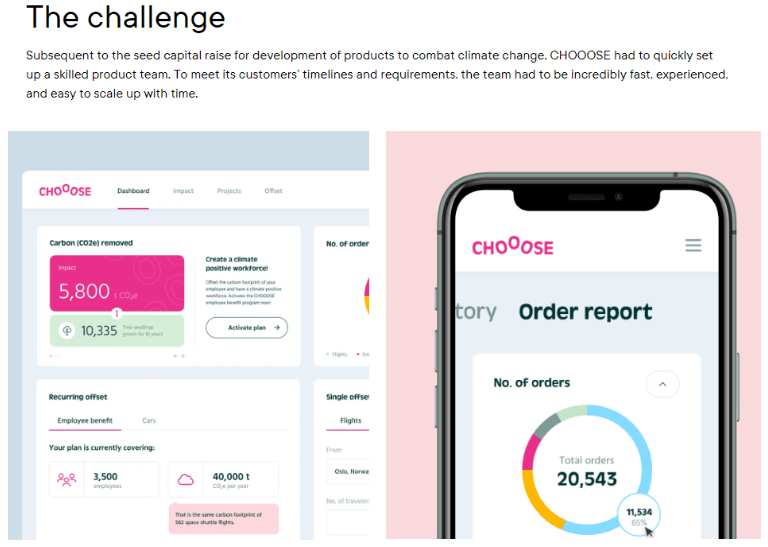 Source
Source 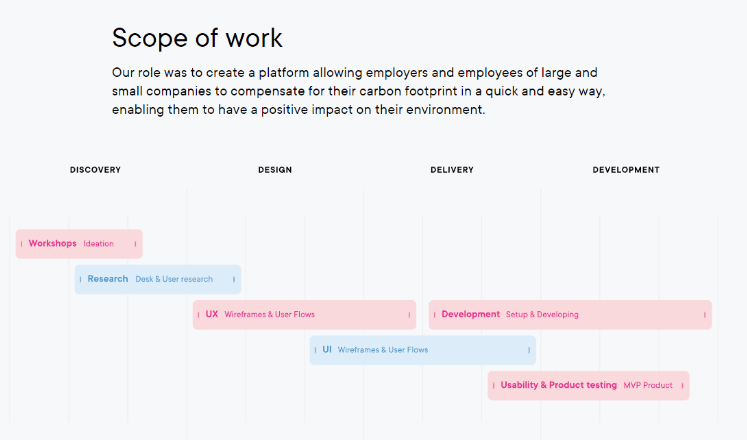 Source
Source 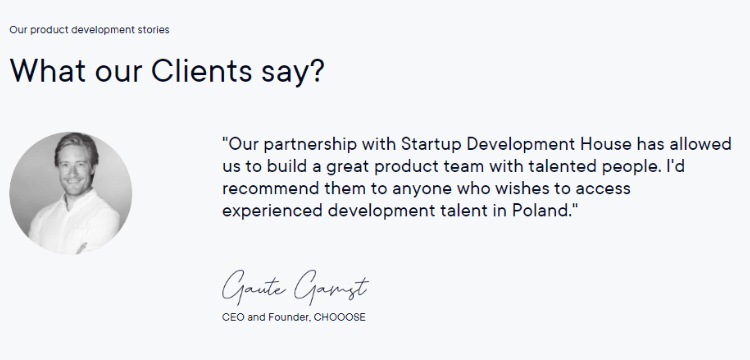 Source
Source11. Marketing Case Study Example: Informatica
This one’s a bit more formal in terms of design and format. The key is choosing the layout which works best with your brand’s identity and target audience.
 Source
Source12. Marketing Case Study Example: Tao Digital Marketing
You can also create a long blog post presenting that case study in detail, just like Tao Digital Marketing did. This will generate awareness and interest in your brand.
When writing these, focus on your client. What needs or pain points did you address with your product and service? How did you go about solving these issues? What were the results of your efforts?
 Source
Source13. Marketing Case Study Example: The Hoth
You can also promote your case studies through email marketing. It’s a great way of increasing traffic to your website. Plus, it could be that little push that someone needs to turn into a customer.
 Source
Source14. Marketing Case Study Example: OSM Worldwide
You can also post case studies on LinkedIn to attract clients, especially if you run a B2B company.
 Source
SourceWisdom of the Crowd
When in doubt, we check what others are doing to solve their problem. Wisdom of the crowd social proof can be leveraged in many ways.
15. Wisdom of the crowd example: Curology
On their homepage, Curology showcases the number of clients they’ve served, the number of 5-star reviews they’ve got, and the percentage of customers that found their skincare services effective.
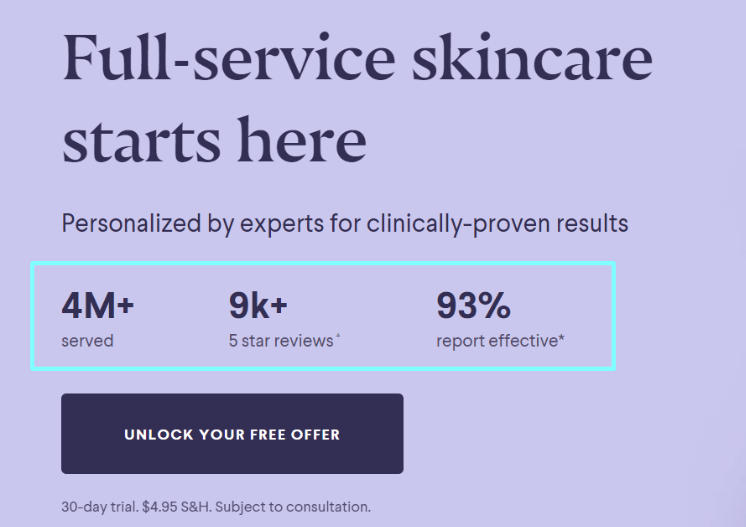 Source
Source16. Wisdom of the crowd example: Cult Beauty
You can also add social proof indicators to a product’s page, such as “trending”, “best seller”, or “crowd favorite”. Cult Beauty does this with excellence. Not only did they include a trending icon, but they also added a snappy copy to go with it!
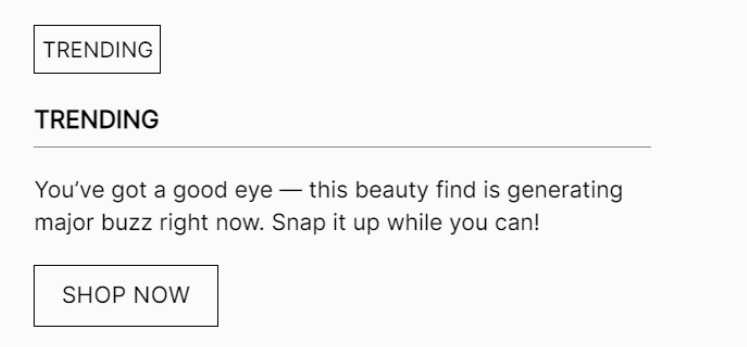 Source
Source17. Wisdom of the crowd example: Nasty Gal
Like it or not, fear of missing out (FOMO) is real. We don’t like being left out or missing out on great products. One easy way to leverage FOMO is by adding stock levels to the product’s page.
 Source
Source18. Wisdom of the Crowd Example: Arctic Fox
Artic Fox displays the hair transformation of happy customers on their Instagram feed. Depending on the business you’re in, this might be a suitable option for you.
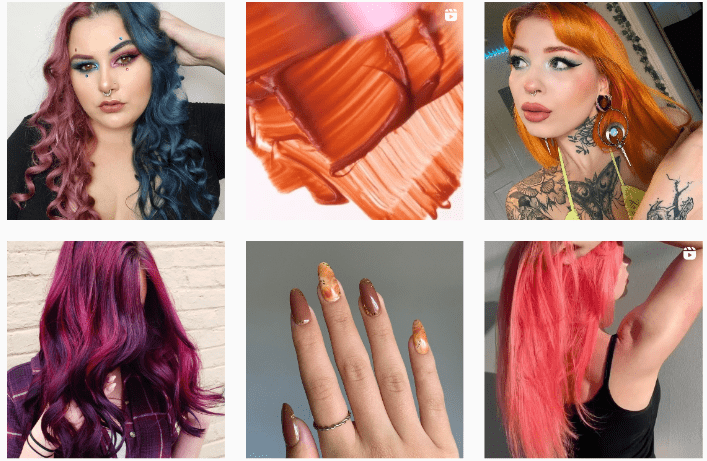 Source
Source19. Wisdom of The Crowd Example: Atomic Habits
If your product or service is a crowd favorite, you can mention how many people have already purchased it.
 Source
SourceCertifications & Awards
Don’t be modest about the awards and certifications you received. Show them off! Most review sites will give you a badge icon, that you can easily upload to your homepage. You can also inform leads about your awards through social media and press releases.
In a market brimming with choices, award-winning companies are more trustworthy to customers.
20. Social Proof Example: StartUp House
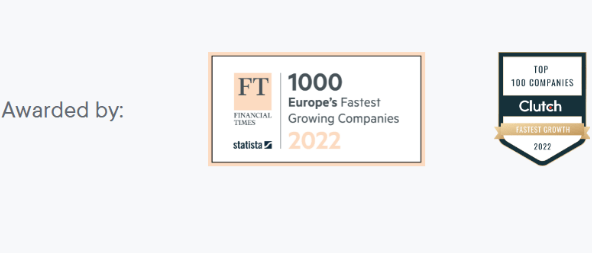
Source
21. Social Proof Example: DEGIRO
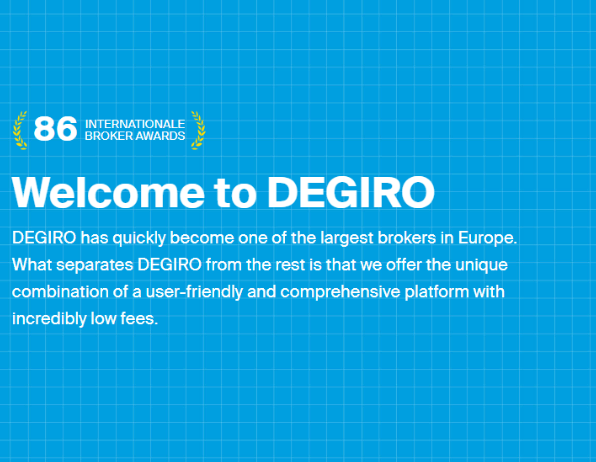 Source
Source22. Social Proof Example: Xara
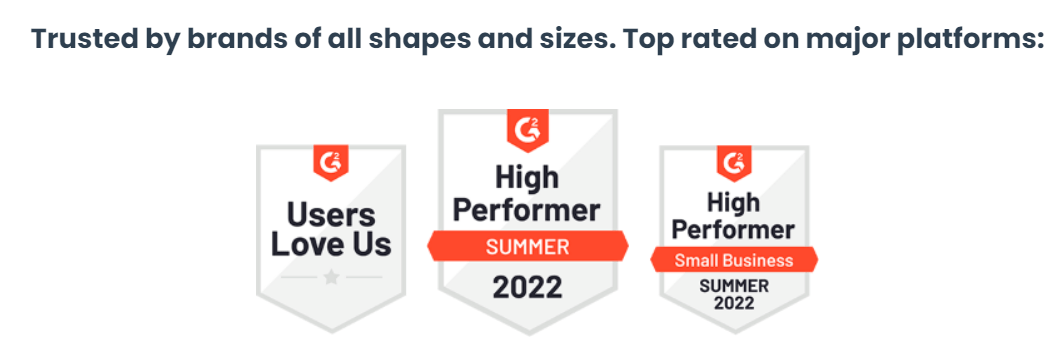 Source
SourceExpert Stamps of Approval
Expert stamps of approval can come in many forms. Here are some expert social proof examples to spark your creativity.
23. Expert Social Proof Example: Aeon
As Aeon does, you can showcase your expertise through blogs and guides from industry experts. Every one of their articles is written by experts in the field. Readers get a short bio of the author right from the get-go. This builds credibility and trust.
 Source
Source24. Expert Social Proof Example: Cerave
Cerave also capitalizes on social proofing. Their products are tested and reviewed by dermatologists, which makes people more inclined to go for them.
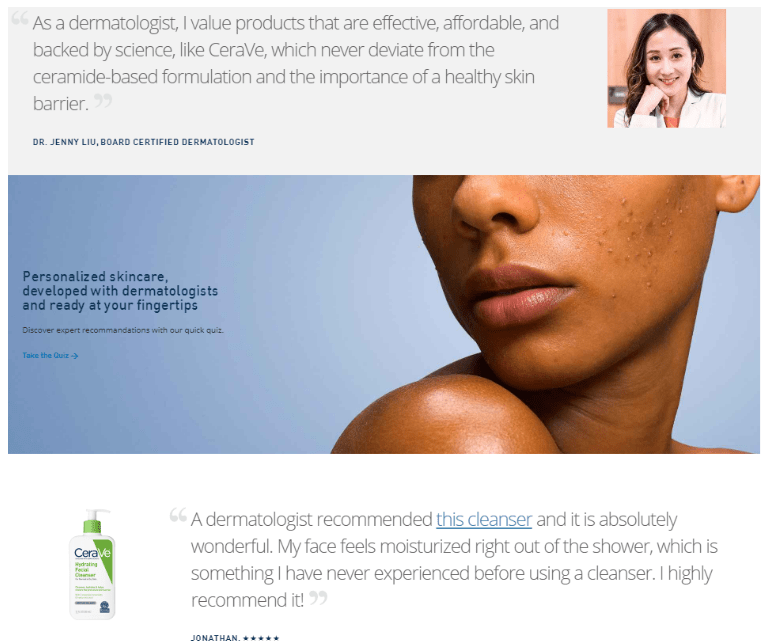 Source
Source25. Expert Social Proof Example: quip
So does quip. Adding professional testimonials on their website proves that their product is backed and used by experts.
 Source
Source26. Expert Social Proof Example: Soulvation
Media mentions build trust in your products. So, if you’ve ever been mentioned by experts or reputable media sources – take pride in that and feature their logos on your website!
 Source
SourceCelebrity Endorsements
The key to successful celebrity endorsements is choosing influencers or celebrities who are congruent with your brand’s identity, values, and mission. Oh, and choose people that are admired and liked by the target audience.
27. Celebrity Endorsement Example: Tampax
In 2020, Tampax launched a humorous and informative campaign with Amy Schumer. They chose the comedian because she tackled this subject in a previous special. As such, she was the perfect match. Tampax’s collaboration with Amy Schumer went so well that it sparked a tampon shortage around the USA.
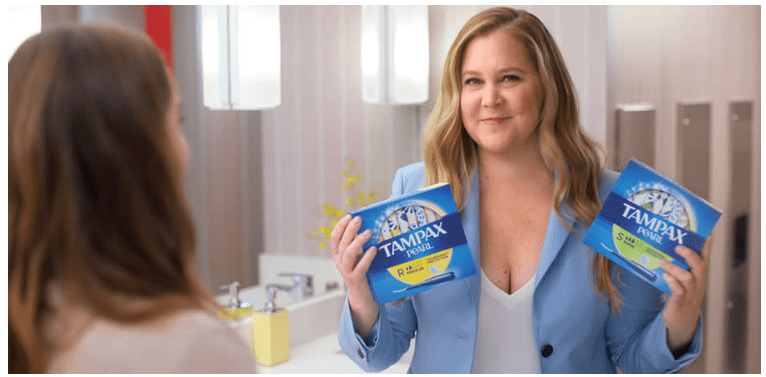 Source
Source28. Celebrity Endorsement Example: Modere
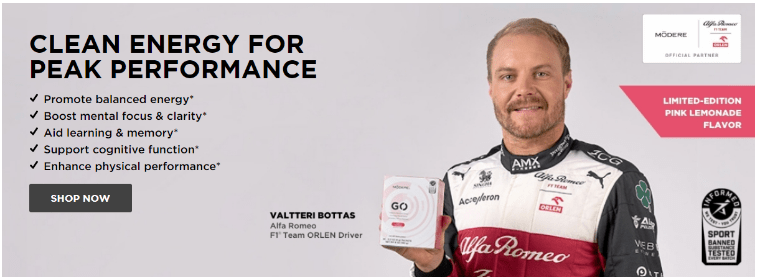 Source
Source29. Influencer Social Proof Example: Instagram
When Instagram just launched, Jack Dorsey, the founder of Twitter, posted a tweet about the new platform. Thanks to his and other influential people’s posts, Instagram had 100,000 users within a week.
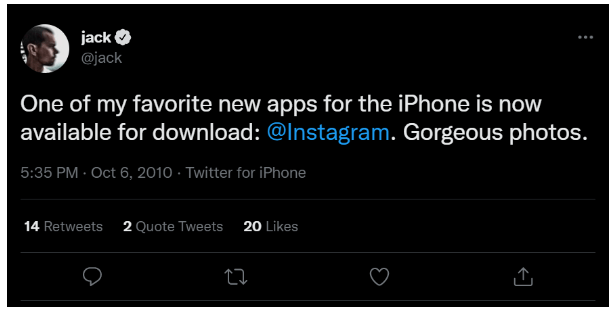 Source
Source30. Influencer Social Proof Example: Nothing New
If you want to create a buzz around your products from the get-go, you can feature influencers who have used your product on your website!
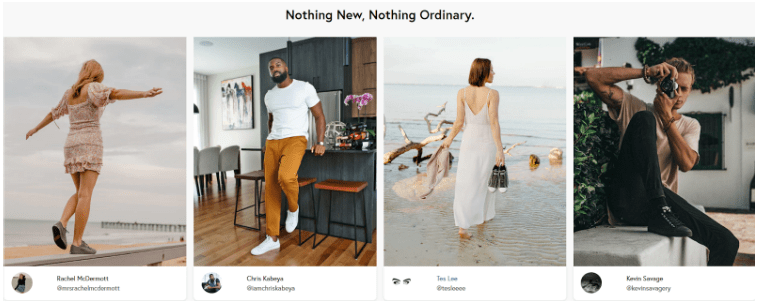 Source
SourceInfluencer marketing can bring you a crazy engagement rate. Plus, it’s way more affordable for many businesses than celebrity endorsements.
How to Determine Which Kind of Social Proof to Use?
Social proof is a powerful marketing tool, but it’s not a one-size-fits-all solution. The type of social proof you use for your business should be based on your customer segments and the type of products and services you use.
For instance, if you’re selling tech products or services, you might want to go for awards, user reviews, case studies, and expert stamps of approval. Your audience might resonate more with this type of social proof.
If you’re selling a luxury product, testimonials from celebrities or other high-profile people can be very effective. If you’re trying to build trust with potential customers, reviews from real people can be more persuasive than celebrity endorsements.
And if you want to create a sense of urgency, showing that other people are interested in your product can be helpful. Ultimately, the best way to use social proof is to carefully consider what will work best for your specific business and goals.
Use Xara Cloud To Leverage Social Proof
As any good marketer knows, social proof is a powerful asset. Seeing that others have taken action can be a strong motivator for someone else to do the same. That’s why savvy marketers use social proof to boost engagement, turn leads into customers, and create a buzz around their products.
So, if you’re looking to add a little social proof to your website but have no design experience, why not try Xara’s social proof templates?
With a wide range of options to choose from, including testimonials, reviews, and user feedback, you’re sure to find the perfect template to suit your needs. And best of all, Xara makes it easy to customize and edit the social proof templates to ensure they’re consistent with your brand’s identity.
So, what are you waiting for?
Start creating for free!



 No credit card or phone number required.
No credit card or phone number required.